Could your company benefit from an open source ERP?
An open source ERP allows you to access the source code of the software, and comes with a license to use and modify it with relative freedom. The advertising and media comments related to ERP systems ignore open source for the most part, so here’s a run-down of some of its advantages.
Whilst keeping in mind that whatever ERP you select is only a tool you will use to help you and your organization meet your goals, could your company benefit from an open source ERP?
Own your ERP
One of the primary values of open source ERP is that you own the software. You do not use it under a license from an ERP provider. Your customizations are only yours to use and to support. You have no concern whether the next upgrade coming from the provider and not under your control will work with your customization of a licensed ERP. There is no obligation to purchase support and accept whatever future changes an ERP provider might develop in the future.
Recommended reading: find an open source ERP vendor that suits your company with our completely up-to-date ERP vendor directory.
The downside of this is what support is available. If you have the development support already, this can be OK. there are independent developers for open source ERP but they might not be as easily found or available as those employed by your licensed-system provider.
Lower cost
Most open source ERP systems can be downloaded free or at a low cost. You can often begin using the ERP while you are making your evaluation and the system is live. This can lead to much better evaluations than trying software in a limited, controlled environment with a professional sales person stepping you through the evaluation.
Worldwide support
Open source ERP is supported by a worldwide community of developers. Changes are vetted thoroughly before they are made available. Bugs are fixed continuously as they are reported and documented. Open source ERP is well-documented too. Users across the globe have written the documentation and made it available - usually in your native language.
Up-to-date
Open source ERP developers tend to use the most current tools. There is little chance that your ERP will have its roots in COBOL from the 1960’s with some of the limitations from that era still hiding within the software. Open-source ERP is likely to be ready for internet connections and web sales as soon as implemented with a host of integration tools already available.
Your open source ERP might use an open-source database and run in an open-source operating system as well. These features will appeal to many businesses.
Open source ERP might someday be required. The government of India asks now that open-source software be used as a preferred option. The US White House is carrying out the President’s goal of using technology to make a real difference in individuals’ daily lives. Open source software is a way of making it easier for the government to share data, improve tools and services, and return value to taxpayers.
So, if you want an ERP where you control the software and know you will need customization to meet your needs and have the developer staff, take a good look at open source ERP. It might be exactly the set of tools you need.
Free white paper
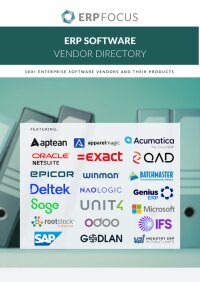
ERP Software Vendor Directory
Put the most comprehensive ERP vendor directory on your desk today
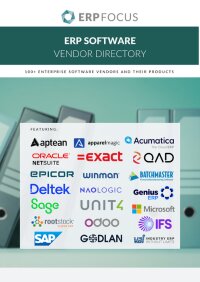
Featured white papers
-
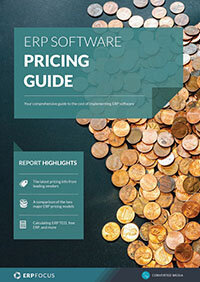
ERP Software Pricing Guide
Get the latest pricing information on over 80 popular ERP systems, and learn how to budget for your ERP project in our free guide
Download -
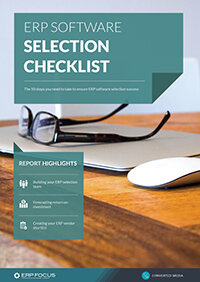
60-Step ERP Selection Checklist
Get the comprehensive checklist for your ERP selection project
Download -
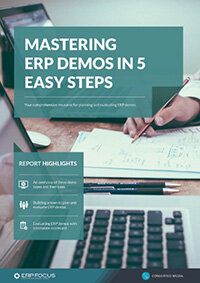
ERP Demo Guide & Scorecard
Master your ERP demo with 5 easy steps using our free guide (includes demo scorecard)
Download
Related articles
-

The best ERP systems for process manufacturing
Consider these ERP systems when selecting your next process manufacturing ERP
-

How the right ERP can help you launch a successful omnichannel business
Petersen Zhu, CEO of DigitBridge and Vibes Base, shares how to create a scalable omnichannel stra...
-

5 ERP pricing definitions you need to understand
Have you mastered the ERP pricing lexicon yet? Getting to grips with these five definitions is a ...

